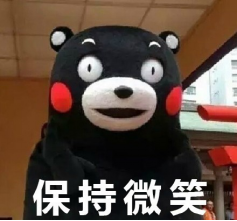Recently, the price of polyester raw materials has been rising again and again, almost reaching the height of the sun. Since last month, PTA has experienced a strong upward trend. PTA futures have already exceeded 8,000 and successfully reached a new high. Polyester filament has also experienced ten consecutive price increases by leveraging the supply of upstream raw materials. At the same time, other products such as polyester chips have also followed the trend of rising prices of polyester filament.
, according to this form, if you calculate the account carefully, it is really not as good as opening a factory to sell cloth…

Selling raw materials
When I visit the market every day, I can always hear that many textile bosses It is said that although the price of raw materials has been rising, the price of its own products has not risen. Even if the price of products does rise, the extent is far less than the price increase of raw materials.
Later I heard someone say that if you have 10,000 tons of polyester filament, you might as well wait for the price to rise and then resell it. You can make more money by weaving and selling the cloth yourself than by selling it. After thinking about it, I realized that what I said is correct. It is really not as fast as selling silk directly to make money!
Selling indicator
Under the dual pressure of cost and environmental protection, many Small factories have long been in poor management, and seeing the profits from weaving getting lower and lower day by day, many cloth owners thought of a way to make money – selling quotations.
In the past few days, many textile groups have There are indicators for sale, and the price of one indicator is more than 20,000. Most of the manufacturers selling indicators are small and medium-sized enterprises, and the number of indicators sold is about 30-70. Calculated in this way, if a small factory has 50 indicators, the price of selling indicators is You can earn more than one million, but in today’s environment, the net profit a small factory can get from normal operation for a year may not be as much as what you get from selling the quota. In addition, many small factories are already facing the risk of bankruptcy, so they choose Selling indicators is not a bad choice.
Selling Machines
Yesterday, a boss Liu said to the author: ” It’s hard to do business now. On the one hand, raw materials have gone up too fast, and they’re not only expensive but also hard to buy. Even if we can buy them, we can’t make much money from weaving. On the other hand, environmental protection is also very strict, and machines are often there. If it is left not running, it will give me a headache. It is too difficult to sell cloth. Now we want to sell all those idle machines and make a little profit.” In this textile environment, only the strong can survive. Here, some decisions made by textile bosses are indeed helpless.
Selling a factory
While chatting with a friend, I heard that the owner of a certain company A piece of land was acquired. The original company of the factory went bankrupt not long ago. Due to foreign debts, it had to sell the factory to repay the money. Although I don’t know why that company closed down, it must have been because profits turned negative. And you can always see information about some textile mills being auctioned online.
If you think about running a factory now, you must first Buying or renting a factory, hiring workers, arranging machinery, plus the daily product research and development fees, environmental protection management fees, etc., and the current cost has soared, it is not easy to make a good profit, and it is inevitable that some factories will go bankrupt and close down , selling the factory may be the last straw.
Boss Bu: Actually, I don’t want to sell those things, I still want to sell cloth!
Writing this, the author can’t help but want to ask the cloth bosses, under what circumstances do you sell machines and factories? ? So, I conducted a brief interview with two weaving factory owners.
In fact, even if the raw materials rise, the textile bosses will be worried It breaks my heart, but if it comes to giving up the factory and selling cloth, how many bosses can really be so determined? Many bosses are unsure about selling all their factory machinery and equipment.
There is such a group of textile people, although they work every day They are all worried about their jobs, but they still love this industry deeply. In the overall industry environment that is hit by multiple difficulties, they say they will never sell cloth again, but in their hearts they still want to do this job.good. This is the miserable but hard-working textile man. There is a sentence in “A Warning to the World”: “If you want to live rich and prosperous, you must work hard.” The author will make a popular statement here and hope that those textile people who work hard at work can achieve the wealth they want. Life.
</p








